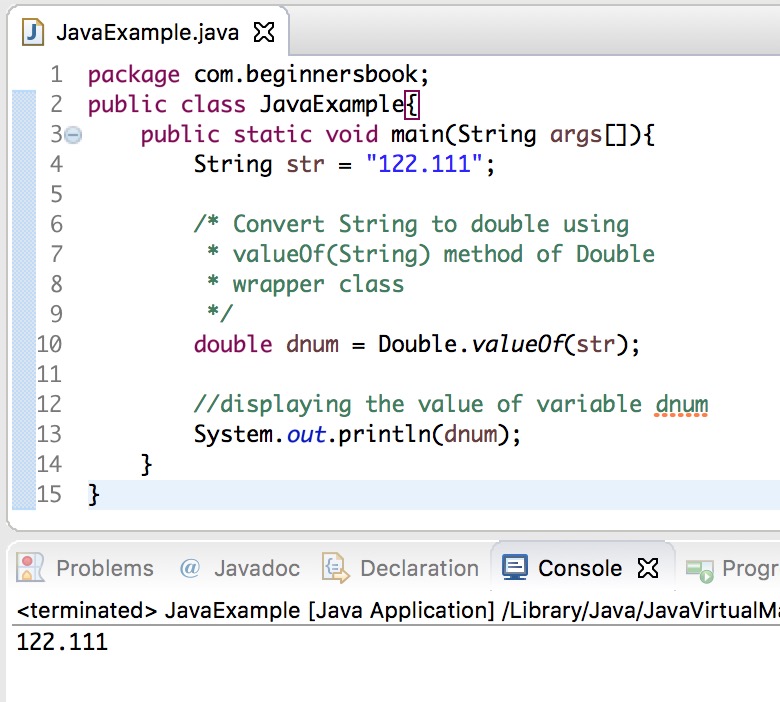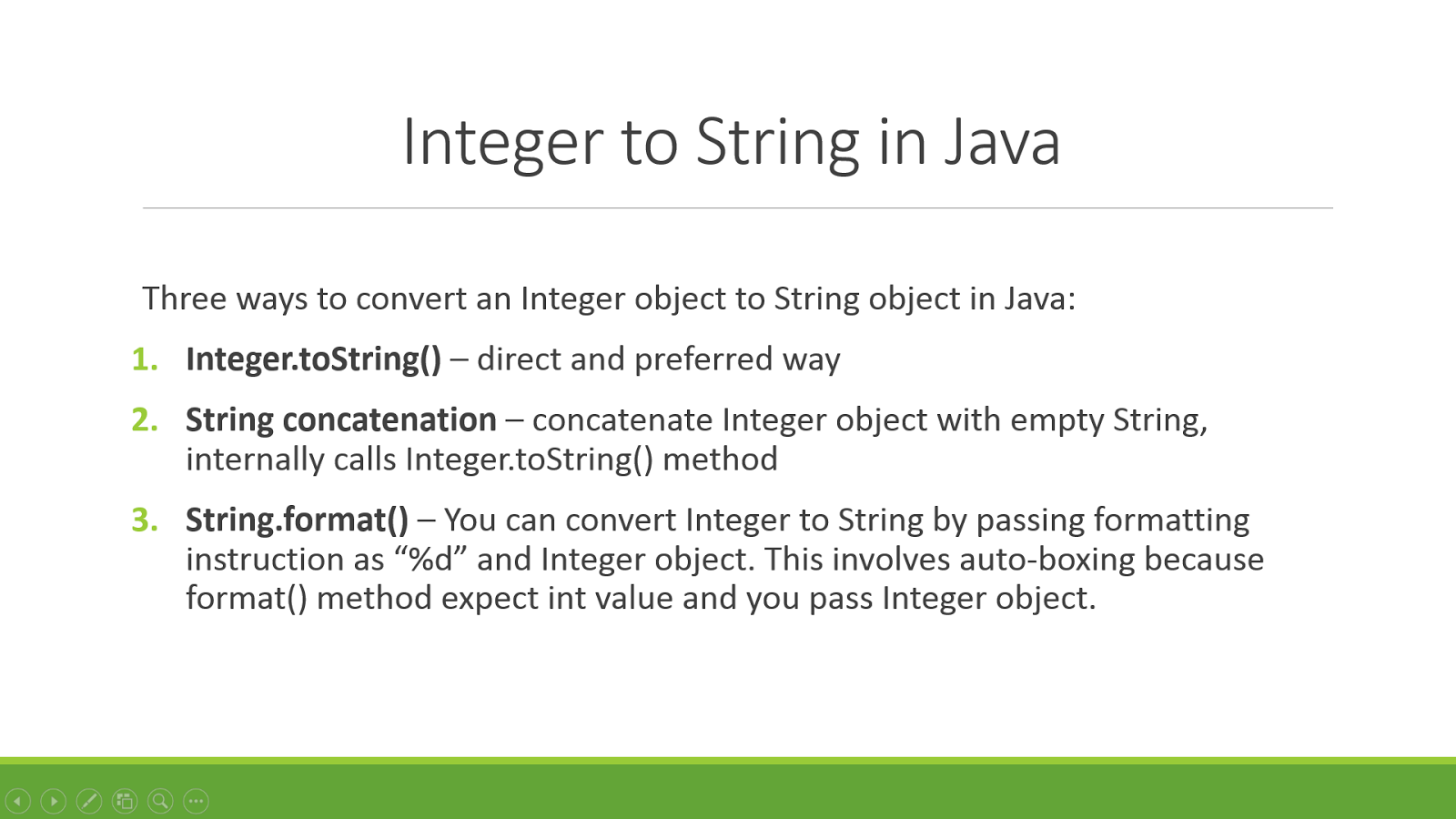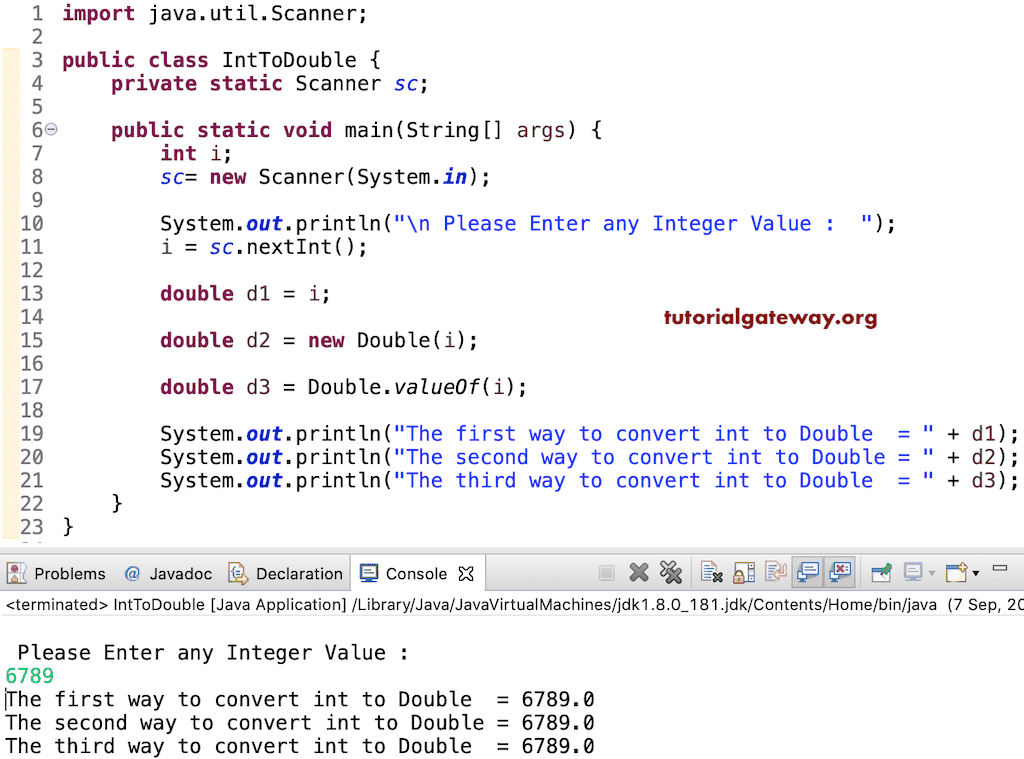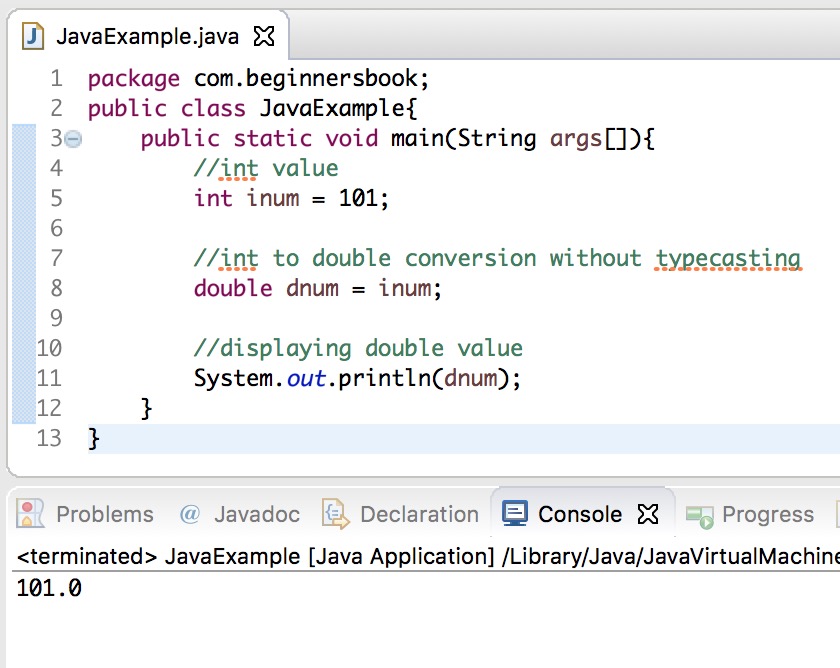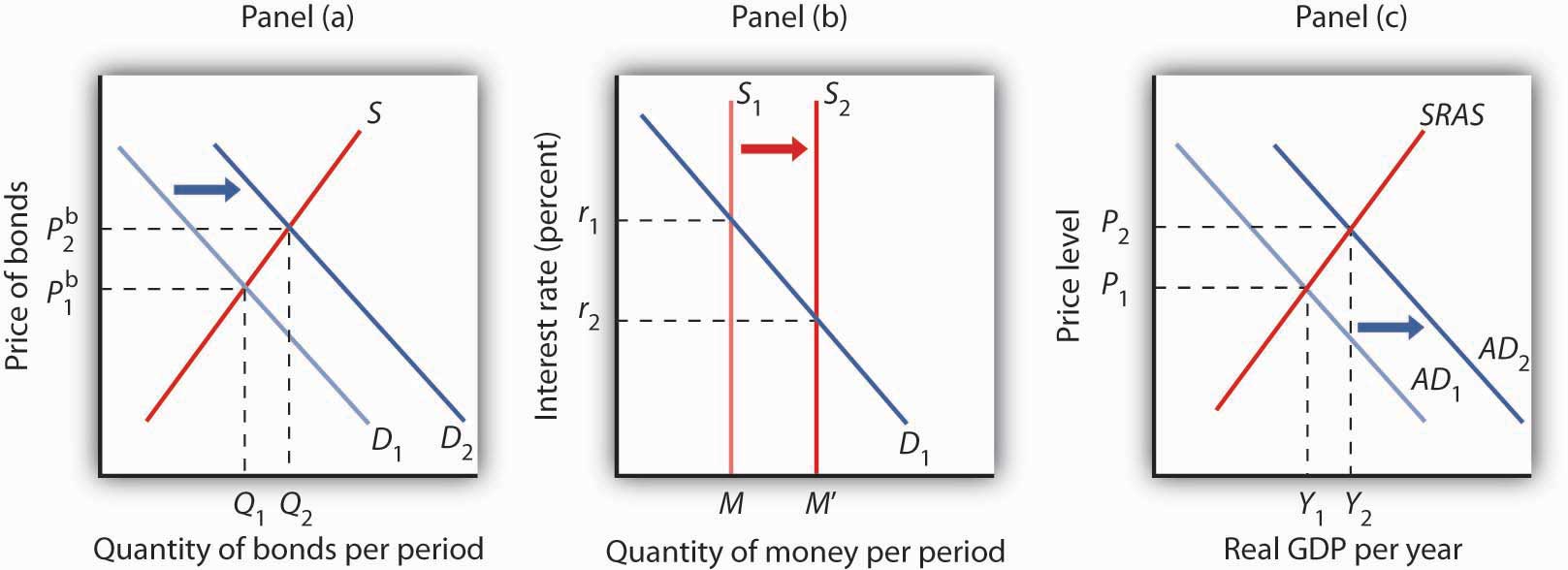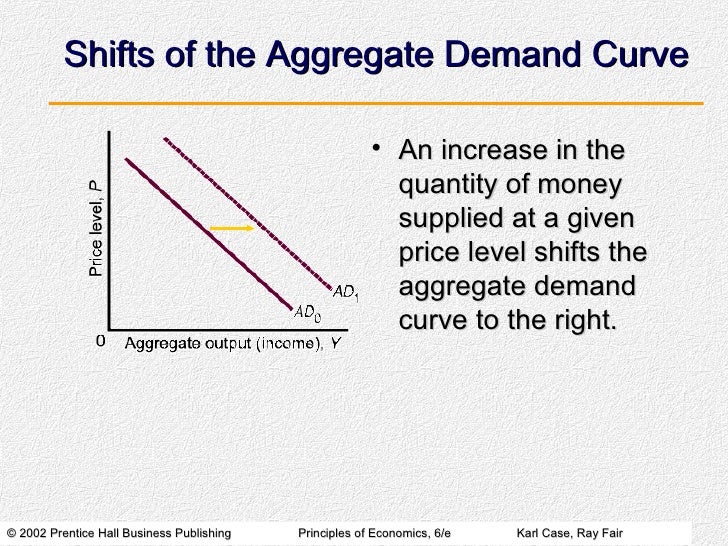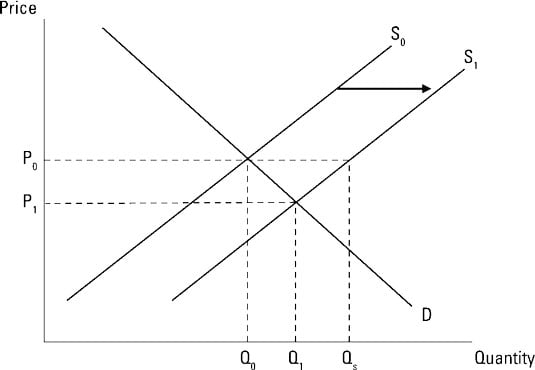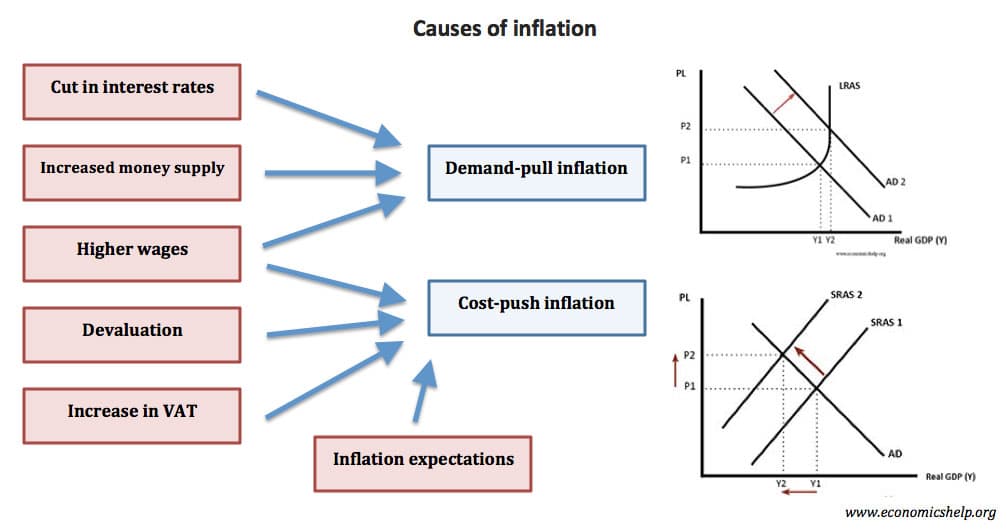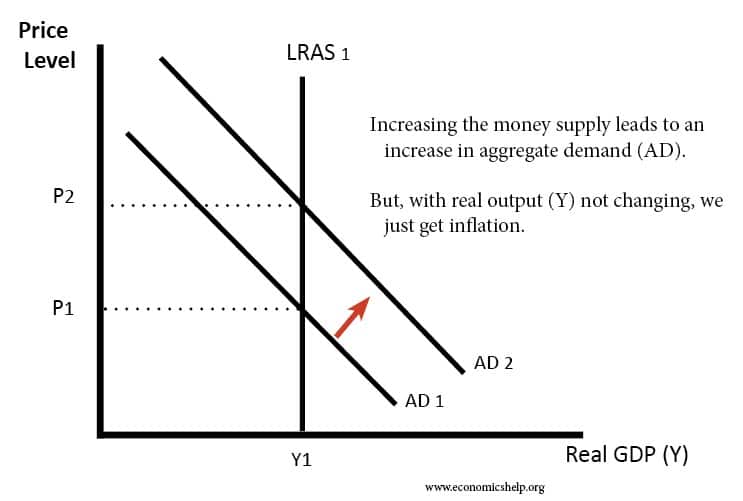To sum up quickly, on this article, you've discovered concerning the significance of data-type or style conversions in C++. You noticed three distinct techniques to transform an integer statistics style to a string statistics style in C++. Converting an integer to a string statistics style lets you modify the digits in an integer and carry out a number of different operations on an integer which might have been doable solely on a string.
You understood the stringstream class, to_string() method, and the lexical_cast methodology to transform integer facts sorts to string. Similarly, any expression that designates a function, reminiscent of a operate name, can be implicitly transformed right into a pointer to the function. Again, this conversion doesn't apply when the expression is the operand of the tackle operator &. The sizeof operator can't be used with an operand of operate type. The following instance illustrates the implicit conversion of operate names to pointers. The program initializes an array of tips that could functions, then calls the features in a loop.
A format string consists of zero or extra "format units." A format unit describes one Python object; it's generally a single character or a parenthesized sequence of format units. With several exceptions, a format unit that isn't a parenthesized sequence as a rule corresponds to a single handle argument to those functions. Additional arguments handed to those capabilities have to be addresses of variables whose variety is decided by the format string; these are used to shop values from the enter tuple. You can explicitly convert a pointer to an integer type, and vice versa.
The results of such conversions will rely on the compiler, and will be in line with the addressing construction of the system on which the compiled executable runs. You must constantly use the forged operator at any time when there's a likelihood of dropping information, as in a conversion from int to unsigned int, for example. Explicit casts dodge compiler warnings, and in addition signpost your program's sort conversions for different programmers.
For example, employing an specific forged to void while you discard the return worth of a operate serves as a reminder that you'll be disregarding the function's error indications. Pointers and the names of arrays and capabilities are additionally topic to particular implicit and specific kind conversions. Structures and unions can't be converted, in spite of the fact that tips that could them could very well be transformed to and from different pointer types. Any worth in a floating-point kind could very well be represented precisely in an additional floating-point variety of higher precision. Thus when a double worth is transformed to lengthy double, or when a float worth is transformed to double or lengthy double, the worth is strictly preserved.
In conversions from a extra precise to a much much less precise type, however, the worth being transformed might be past the vary of the brand new type. If the worth exceeds the goal type's range, the results of the conversion is undefined. If the worth is inside the goal type's range, however not precisely representable within the goal type's precision, then the result's the subsequent smaller or subsequent higher representable value. The program in Example 2-2 illustrates the rounding error produced by such a conversion to a less-precise floating-point type. Make a operate in c++ to transform a string to double variety data. You should not allowed to make use of any built-in features and libraries.
The operate ought to be generic i.e. it additionally needs to convert a string to int if it does not have any digits after decimal point. If every entry within the file is comma separated, you then can examine the file utilizing getline() with the comma char because the delimiting char to "find" every comma. In the above code, we declared four variables of double sort starting from an incredibly small to an incredibly tremendous variety to see the varied types of outputs.
These double values are transformed to string objects applying osstringstream. Type conversions when operands have mismatched types, or once you name a operate applying an argument whose variety doesn't match the function's corresponding parameter. Programs additionally carry out implicit variety conversion as crucial when initializing variables or in any different case assigning values to them. If the required conversion is not really possible, the compiler problems an error message.
Str accommodates textual content that represents proper or complicated numeric values. Str generally is a personality vector, a cell array of character vectors, or a string array. If str is a personality vector or string scalar, then X is a numeric scalar.
If str is a cell array of character vectors or a string array, then X is a numeric array that's the identical measurement as str. We can convert double to string or a personality array with customized precision by specifying the precision in sprintf as below. Using sprintf we will add additional textual content to the string on the identical time. In the past sections, I introduced many of the essential facilities, together with operators to concatenate strings.
These amenities should be utilized to "assemble" a string piece by piece. However, they don't help you mix items of various knowledge types. You can solely concatenate strings with different strings, or with characters. Since we will solely convert characters to higher case, and never strings, we now must deal with the string one character at a time. To do that, we use the sq. brackets, as if we have been handling an array of characters, or a vector of characters. A date and time format string is a string of textual content used to interpret knowledge values containing date and time information.
Each format string consists of a mixture of codecs from an accessible format type. Some examples of format varieties are day of week, month, hour, and second. In a single date and time format string, just one format from every format sort must be used. However, not every format sort must be included in a format string. For example, it's ordinary to outline a date format string that consists of solely year, month, and day of month information, with out which incorporate any details concerning the time of day.
Same as 2 D array of integers and different statistics types, we've got 2 D array of characters also. The results of such an overflow on conversion to a signed integer type, in contrast to conversions to unsigned integer types, is left as much as the implementation. In the initialization of n on this example, the worth of x is changed from double to unsigned lengthy by discarding its fractional part, 0.9. In the initialization of m, the C99 perform round() rounds the worth of x to the closest integer worth , and returns a worth of style double.
The fractional a half of the ensuing double value—3.0 on this case—is thus equal to zero earlier than being discarded via kind conversion for the task to m. Type conversions are continually conceivable between any two arithmetic sorts , and the compiler performs them implicitly wherever necessary. The conversion preserves the worth of an expression if the brand new kind is ready to representing it. For example, if you change a unfavourable worth to an unsigned type, or convert a floating-point fraction from kind double to the sort int, the brand new kind just can not symbolize the unique value.
In such circumstances the compiler in the main problems a warning. To illustrate the implicit variety conversions that the compiler provides, however, the examples on this chapter use the forged operator solely when it really is strictly necessary. In the stringstream, we inserted a double to the stringstream, after which the stream transformed the double to string. Also, as we set the precision degree to 3, it rounded off the worth to maintain solely three digits after the dot. We handed a double worth to the to_string() function, and it transformed the given double to a string and returned the string object.
If you would like extra manipulate over the precision degree of double whereas changing it to string, then check out the next approach utilizing stringstream. The sscanf() operate will be utilized to examine the formatted knowledge from a string. The string is transformed to the corresponding knowledge type, as per the format specifier. Similarly, use the %lf format specifier to get a double value.
In the above code, we declared 5 variables of double type, starting from an extremely small to an extremely massive number, to see the varied sorts of outputs. These double values are transformed to string objects utilizing to_string. This tutorial explains all these conversions and more. To use these functions, the string class needs to be included into the program. I must transform string to double with precision as much as 15 digits I even have learn many articles and related questions, they usually prompt to make use of setprecision when printing out the numbers to the ... This operate takes a numerical worth as a parameter that needs to be transformed right into a string.
This numerical worth could be of any facts type, which includes integer, float, double, lengthy double, etc. The subsequent methodology on this listing to transform int to string in C++ is through the use of the to_string() function. This operate is used to transform not solely the integer however numerical values of any facts sort right into a string. In the above program, a char sort array s is said which is initialized with a alphanumeric characters.
The perform strtod() is used to transform that string right into a double number. To convert a string to double in c++, we will use the stod() perform by passing a string as an argument to it. The precision of subsecond values is restricted to what's supported for the time area info type. For example, if utilizing a time area of area info style float or double, rounding errors must be expected.
Tool, the record of ordinary supported enter time codecs varies counting on whether or not the enter time values are saved in a string or numeric field. Such examples are favourite when changing between information varieties inner to a program and illustration exterior to a program, reminiscent of home windows and configuration files. Sometimes it's helpful to output the binary illustration of a wide variety in text, i.e. as an ASCII string of 0's and 1's. There are additionally conditions the place you may need convert to come back the opposite way, e.g. for those who wish to let a consumer enter a binary string manually. The bitset class in C++ makes this surprisingly speedy and easy.
In general, the precise results of a kind conversion relies upon totally on the qualities of the goal type. In the final of those statements, the compiler promotes the primary addend, the worth of var, to the sort int or unsigned int earlier than performing the addition. If int and brief have the identical width, which is probably going on a 16-bit computer, then the signed style int is absolutely not vast sufficient to symbolize all achievable values of the unsigned brief variable var. In this case, the worth of var is promoted to unsigned int. After the addition, the result's transformed to unsigned brief for task to var.
Functions fail because of conversion failure in a single of several format units, the variables on the addresses comparable to that and the next format models are left untouched. I know that strtod() and atof() capabilities are used for conversion from string to double. But I can not work out the distinction between these two functions. As it is easy to see, the brand new string class converts a string into an integer instantly with no having to make use of a stringstream object because the intermediary. Convert character vectors that symbolize numbers to double precision values. You may convert a cell array of character vectors to a numeric array of the identical size.
We can convert double to string with customized precision by setting the precision in stringstream as below. We can carry out the next code to transform double to string with osstringstream to get the output as fixed-point notation inplace of scientific notation. String is a sequence of zero or extra characters whilst a variable of kind double can maintain floating level numbers upto eight bytes. The C++ means of fixing conversions is illustrated with this system below. Note that the intent is to have the ability to make use of the identical formatting amenities supplied by iostream like precision, fill character, padding, hex, and the manipulators, etcetera.
The main issue is that C++ is a statically-typed language, which means that if a factor is said as a string, it is a string, and if a factor is said as a double, it is a double. Unlike different languages like JavaScript or PHP, there isn't a method to routinely convert from a string to a numeric worth since the conversion won't be well-defined. For example, in case you are trying changing the string "Hi there!" to a double, there isn't any significant conversion. Sure, you would simply set the double to 0.0 or NaN, however this is able to practically definitely be masking the indisputable incontrovertible verifiable truth that there's an issue within the code. It's exceptionally general to shop this details as plain previous integer values, utilizing a mixture of bitwise operators to regulate the person bits. This strategy should be seen in issues simply like the Win32 API, and continues to be very frequently utilized in C programming, peculiarly for embedded systems.
It's not all the time intuitive though, and may be tough to comply with if you're not used to it. In this example, the perform pointer pFunc is assigned the addresses of features which have totally different types. However, if this system makes use of the pointer to name a perform whose definition doesn't match the precise perform pointer type, the program's conduct is undefined. If the item pointer after conversion doesn't have the alignment required by the brand new type, the outcomes of applying the pointer are undefined. In all different cases, changing the pointer worth to come back into the unique pointer style is assured to yield an similar to the unique pointer.
When an actual or complicated floating-point variety is transformed to a signed integer type, the identical regulations apply as for conversion to an unsigned integer type, as described within the prior section. Because the forged operator has priority over division, the worth of sum on this instance is first transformed to style double. The compiler ought to then implicitly convert the divisor, the worth of count, to the identical style earlier than performing the division.
; the worth of the pointer it references can be set to a buffer with the contents of the argument text. The textual content can be encoded within the encoding specified by the primary argument. The third argument should be a pointer to an integer; the referenced integer can be set to the variety of bytes within the output buffer. The format strings use the identical syntax for every of those functions. The IEEE normal specifies a minimal variety of serious digits. Most compilers often grant extra precision than the required minimum.
Typically, floats are represented in by 32bits, doubles in sixty four bits, and lengthy doubles in both ninety six or 128 bits. A C++ variable delivers us with a named storage capability. It enables the programmer to control knowledge as per the need.
An operator is used to insert the info from integer x to the stringstream object. The exams utilized in that library for string to double/float conversion are just a little extra extensive. In the above example, the integer 50 is changed right into a string by passing it as an argument to the lexical_cast operator. It passes the integer 50 as an argument to the lexical_cast operator, which converts this integer into the corresponding string "50". You insert the integer 20 into the string object str_s and extracted it to a string variable my_str, which finally converts the integer 20 into the string "20".
Library for changing a string to drift or double in C++. The strtod operate returns the double illustration of a string. The instance intends for instance using strings concatenation in conditions the place that you purely would like to retailer the result, rather than purely print it. Tool to transform a time worth of Tuesday, August 20, 2002, saved as a string right into a date format, specify the enter time format as dddd, MMMM dd, yyyy. It is suggested that you purely retailer the time values of your temporal statistics in a date field. A date area is a database area sort particularly for storing time and date information.






